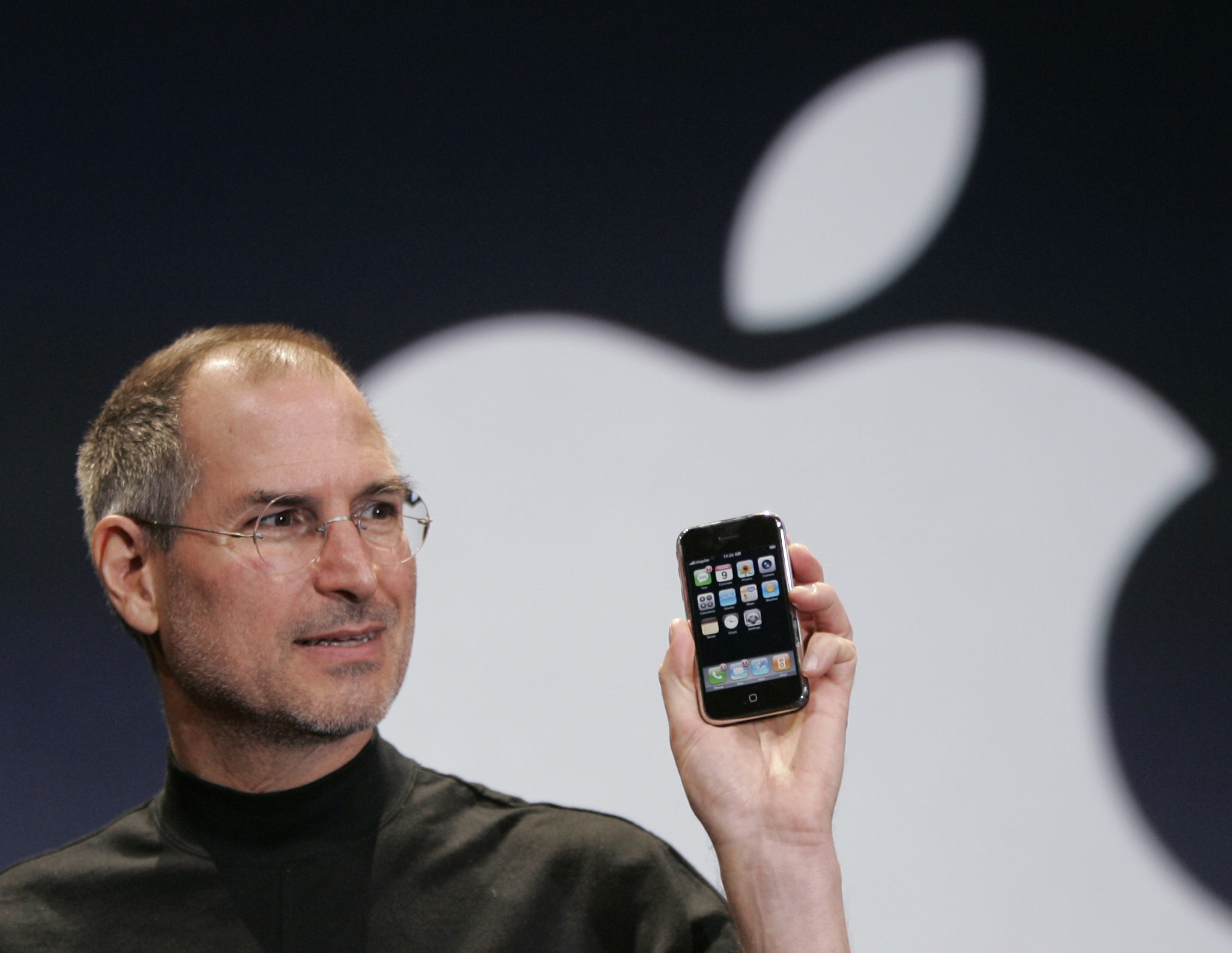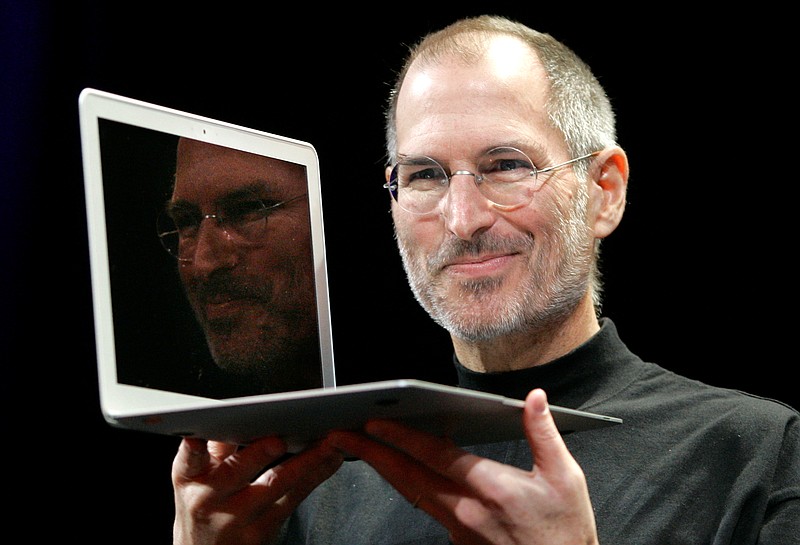 In this Jan. 9, 2007 file phtoo, Apple CEO Steve Jobs holds up an Apple iPhone at the MacWorld Conference in San Francisco. Jobs the CEO, Jobs the technologist and futurist, Jobs the inventor and innovator and refiner of others' ideas: All of them, in the end, relied upon another Steve Jobs who sewed the others together and bottled their lightning: Steve Jobs the storyteller, spinning the tale of our age and of his own success, and making it happen as he went. (AP Photo/Paul Sakuma, File)
In this Jan. 9, 2007 file phtoo, Apple CEO Steve Jobs holds up an Apple iPhone at the MacWorld Conference in San Francisco. Jobs the CEO, Jobs the technologist and futurist, Jobs the inventor and innovator and refiner of others' ideas: All of them, in the end, relied upon another Steve Jobs who sewed the others together and bottled their lightning: Steve Jobs the storyteller, spinning the tale of our age and of his own success, and making it happen as he went. (AP Photo/Paul Sakuma, File)When I first heard that Steve Jobs of Apple had died at 56, I was sad because I have become a Mac fanatic. He developed the Mac and an incredible array of high-tech products we now take for granted.
I am not feigning technological prowess. I catch on to computer things very slowly. I love the Mac because it seems it was created for technological crawlers like me.
Donnie Jenkins, who wrote a technology column for the Times Free Press for years and is one of the most brilliant minds I have met in my years of splashing around here on this planet, has talked for years about Jobs. All I needed to see that Donnie was right about his genius was to own a Mac.
As a man, Jobs also was a work of art. In an address at Stanford University he said, "Your time is limited, so don't waste it living someone else's life. Don't be trapped by dogma -- which is living with the results of other people's thinking. Don't let the noise of others' opinions drown out your own inner voice ... have the courage to follow your own heart and intuition."
He was not just a design genius. He was a genius about living life.
So many of us build our entire lives around dogma created hundreds -- even thousands -- of years ago. We either are afraid to question it or feel unqualified. He faced the same kind of technological dogma but went inside himself to create the things he saw there.
At 30 he was fired by his own board of directors at Apple when they sided with his partner on an issue. Instead of foundering in resentment, he started another company that became so successful that Apple bought it, taking him right back to the company he founded. He simply resumed his career of designing unbelievable products.
He said the way he avoided losing himself in resentment when he was fired from his own company was by staying with doing what he loved. He told the Stanford class, "You've got to find what you love." When we allow resentment or any destructive emotion to take us away from what we love, we simply get lost like the songwriter I recently wrote about who let his resentment against Nashville chill down his creative self.
Jobs said we should ask ourselves every day if what we plan to do that day is what we would do if we knew we would die before sundown. If the answer comes up too often as a clear no, it is time to change.
The thing that moves me about his life and achievements is the body of nonreligious but nevertheless deeply spiritual teachings that guided him toward his momentous discoveries.
Donnie Jenkins wrote something on a memorial blog for Pete Chaney that completely speaks to my feelings about losing Steve Jobs: "When a dreamer dies, they take the sun ... Then at some point the sun returns ... It dawns on you that their memories and contributions are forever with you. These sweet remnants now are evident to us. They will appear at the most unexpected times and in the strangest ways, as a testament to the loving nature of the healing universe."
Steve Jobs is gone now, but his sun keeps on rising and shining.
Email Dalton Roberts at DownhomeP@aol.com.
